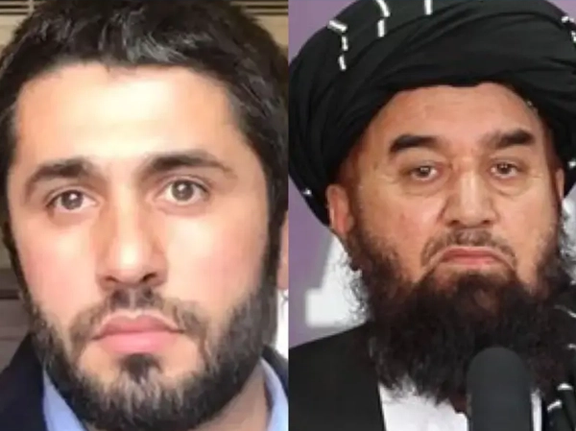No Legal Void In Afghanistan As Quran & Hadith Are Our Constitution, Says Taliban Minister

Abdul Hakim Sharei, the Taliban's Justice Minister, has dismissed criticisms regarding the absence of a constitution in Afghanistan under the group’s rule.

Abdul Hakim Sharei, the Taliban's Justice Minister, has dismissed criticisms regarding the absence of a constitution in Afghanistan under the group’s rule.
He said, "The Quran, the Hadiths of the Prophet, and Hanafi jurisprudence form the basis of our constitution."
In response to concerns about the lack of legislation in the Taliban governance, Sharei noted that following the group's takeover of power, directives from the Taliban leader and various laws were published in five official journals of the ministry of justice.
These statements have triggered objections from a new critic of the Taliban, who has consistently challenged statements made by Taliban officials and spokespersons in recent weeks. Habiburrahman Hekmatyar, the son of Gulbuddin Hekmatyar, has been involved in virtual disputes with Taliban officials following his father's expulsion from his residence by the Taliban’s Justice Minister.
On Monday, Hibiburrahman wrote on X social media platform that the Taliban government lacks a constitution and referred to Sharei’s contradictory statements on this issue.
He pointed out that the Taliban’s Justice Minister had previously indicated intentions to implement the constitution of former king of Afghanistan, Mohammad Zahir Shah, while also stating that work is underway on a new constitution. Hekmatyar's son argued that Sharei's remarks regarding the Quran and tradition suggest a lack of the existence of the Taliban’s constitution.
Furthermore, Hekmatyar criticised the behaviour of the Taliban, saying that such actions mock Islam and push the youth towards "secularism”.
He challenged Sharei’s remarks by questioning if the Quran serves as the Taliban's constitution, then he must clarify, "Where has it been stated that the minister should have three deputies, Kabul should be the capital, and you should be the minister?"
In the early days of the Taliban's rule in 2021, the Taliban's Justice Minister had declared that the group would temporarily implement the constitution of Mohammad Zahir Shah's era, except for provisions conflicting with Sharia law.
Subsequently, last year, the Taliban's deputy prime minister for political affairs announced that, under the directive of Hibatullah Akhundzada, the group's leader, efforts were underway to draft a new constitution. However, despite two and a half years having passed under Taliban rule, the desired constitution is yet to be formulated.